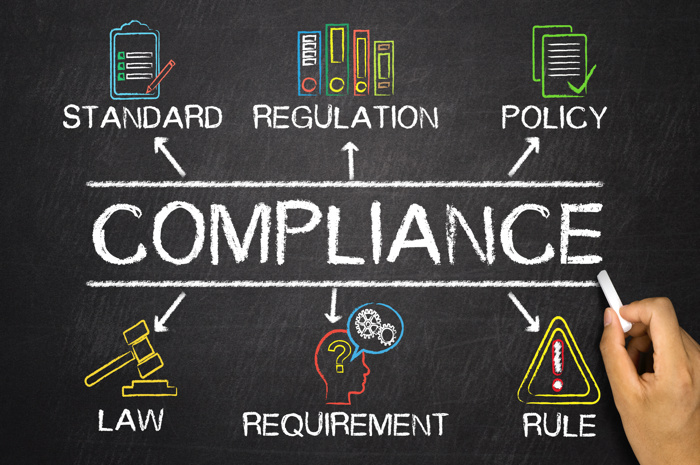The Economic Crime and Corporate Transparency Bill has now made its way through Parliament and has now received Royal Assent. This new act was introduced to help combat fraud by ensuring organised criminals can not form companies in the UK, to help strengthen the UK's borders to economic crime. Finally, the aim is to help Companies House deliver a better service for all the Registered Companies in the UK, by ensuring that the data they hold is more reliable and up-to-date.
What Happened Previously?
Companies House was first created in 1844, when the first Joint Companies Act was passed. This introduced the first formal register for limited liability Companies. This was initially based in London in Chancery Lane. Over the years more legislation has been passed. In 1929, the 1928 Companies Act was passed this consolidated many previous acts. It also introduce new rules for appointment and duties of directors and auditors. It also introduced the legislation for disqualifying directors and winding up companies.
In 1976, Companies House relocated from London to Cardiff.
Prior to the 2015 Companies Partnership and Group (Accounts and Reports) Regulation , small companies could choose to file Abbreviated accounts to Companies House - this means they could choose to file a simplified balance sheet to Companies House.
From 1st January 2016 companies if they qualify as either small or micro can make a choice to file abridged accounts (balance sheet only), full accounts including a profit and loss and directors report or micro accounts, if the company qualifies as a micro company.
A small company is a company that 2 of the following apply:
- Turnover of £15M or less
- 50 or less employees
- Balance sheet total of £7.5M or less
A micro company has 2 of the following applying:
- Turnover of £1M or less
- 10 or less employees
- Balance sheet total of £500,000 or less
What Does the Economic Crime Bill means for Small Companies?
The most significant change for small and micro companies will be that all Companies will now be required to file a profit and loss account showing their turnover and profit. Whilst in the past many companies have chosen to file this information, most have not. There are many draw backs with this. If you are a small company operating in a competitive area, all your competitors will know your turnover and profitability. With the never-ending growth of the internet, there is also the risk that profitable companies will be targeted by criminals. Also the possibility of suppliers or customers using this information to their advantage. And for micro companies with only a director, there is also the risk of your nosy neighbour knowing all of your financial dealings!
Micro Companies will still have the option not to include a directors report. However for small companies, the Economic Crime Bill also states that they will have to include a directors report and provide an eligibility statement if they are claiming audit exemption. This statement will ask the director to identify which of the exemptions from audit they qualify for.
Companies House claim these changes will make the filing requirement easier to understand, help to reduce error and fraud whilst helping to improve transparency.
Companies House will also require all filings to be submitted electronically, meaning that postal submission will no longer be acceptable. Companies House are also looking at the probability of closing their free online portal which micro companies can use for filing their accounts. Companies House say the new legislation will streamline the existing Companies Act 2006 with the aim of making filing requirements for small companies easier to understand.
For small business owners this will mean that there are extra layers of compliance to deal with each year and certainly for the first few years when this is implemented, creating confusion and uncertainty.
Other Measures
The Economic Crime Bill also contains some other measures that will need to be implemented. These include:
- Giving Companies House greater powers to check information and reject if they decided the information is inconsistent or incorrect - Companies House already reject some accounts, so providing a company is keeping accurate records, this is not too onerous.
- Companies will need to provide an address where they can acknowledge and receive documents - for most company directors who are keeping their details up to date, this is just formalising what should already be happening
- Require all directors and people with significant control to have their identities checked, this includes all existing directors and PSC along with all new appointments. This will involve having an anti money laundering checks (AML check) this will include providing photo identification and proof of address.
- Also a requirement for Companies to provide an email address - this will need to be checked and if necessary updated in the annual confirmation statement. However, for nefarious company directors email addresses are easy to come by - Companies House have not said how they will deal with Companies that provide fake emails, do not respond to emails or how they will police it.
The changes of the Economic Crime Bill are also not only for limited companies, they also include changes for Limited Liability Partnerships (LLPs).
These changes include:
- More information about partners in LLPs
- Require LLPs to maintain a registered office
- Require LLPs to submit an annual statement confirming that the details held by Companies House are correct and up-to-date
- to enforce sanctions for various breaches against partners.
The Economic Crime Bill also aim to reduce the number of times a Company can shorten its accounting period and ensure that all accounts are fully iXBRL tagged.
Companies House have as yet not released anytime scale as to when they will be implementing these new changes for small companies. Initially they indicated that it would be summer 2024, however since the passing of the Economic Crime Bill received Royal Assent in October 2023, there has been very little information released from Companies House.
The first change that took effect from 4th March 2024, meant all new companies will need to provide a registered email address and confirm that the company will be used for lawful purposes. For existing Companies, they will need to provide a registered email address and confirm that the company will be used for lawful purpose when they complete their next confirmation statement.
Companies House, have indicated that they will be providing a register of all their recognised software providers - we will of course update you as we find out more and will email our small companies customers of the changes we make to our software to ensure we all remain compliant.























